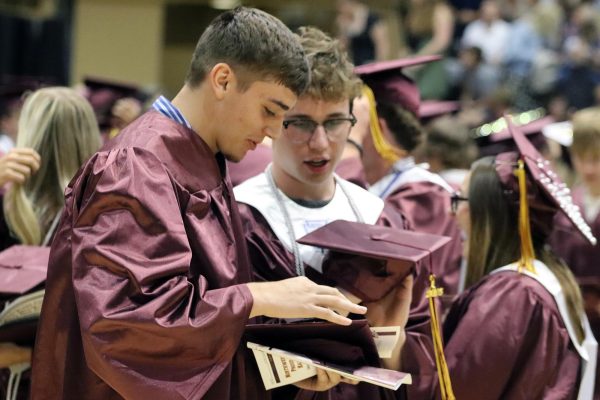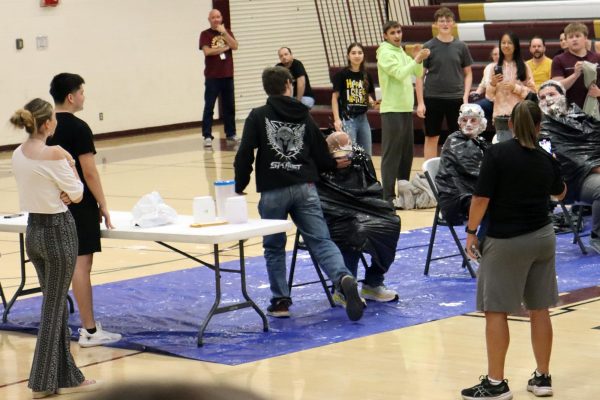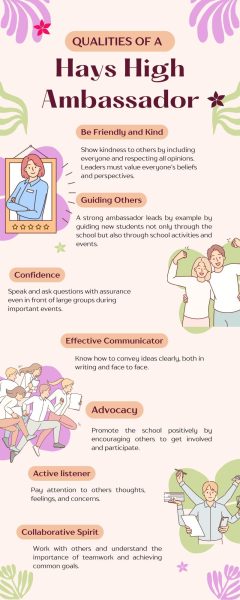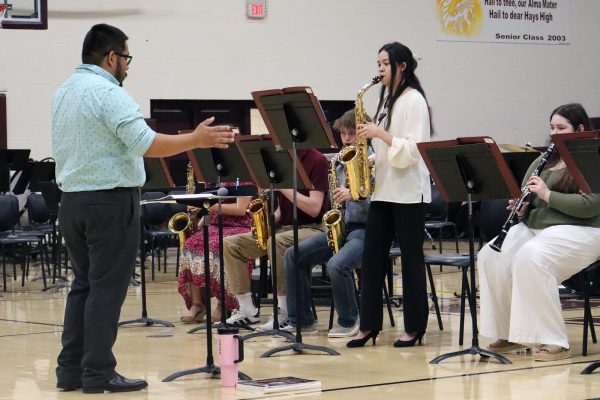Nex-Generation job trainer gives students tips, techniques for interviews
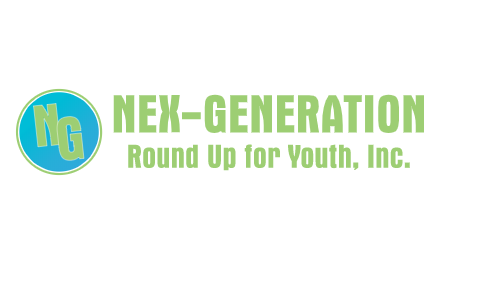
Job trainer Jaque Beckman instructed juniors and seniors on how to stay ahead of the game in their job interviews. Nex-Generation offers hands-on job experience programs to students in a variety of local career paths. The students gain and apply skills by shadowing workers, all while completing their school semester.
Job etiquette trainer Jacque Beckman shared tips and techniques for job interviews with juniors and seniors on Feb. 6 in the Lecture Hall during PRIDE Time.
Beckman works through Nex-Tech’s Nex-Generation Round Up for Youth, Inc.,which works to “fund, promote, and support educational projects, scholarships, and community programs focused on youth.”
According to Beckman, an important part of interview preparation is taking the time to build a professional resume. Showcasing experiences and skills in this way, Beckman said, will help students “get their foot in the door.”
She said it is important to make sure the resume is up to date and that any listed references have been contacted. If a student is applying for a creative position, a portfolio is essential.
“Don’t wait and expect [the interviewer] to ask about that because you may miss the opportunity to show them who you are,” Beckman said.
Beckman said that bringing a refined resume, dressing appropriately, and conducting yourself in a polite and eloquent manner isn’t always enough to get the job.
One of the number-one questions interviewers ask at the conclusion of the meeting is “Do you have any questions for me?”
Without conducting research on the company or school you are applying for, Beckman said a wrong answer to this question has the power to break your interview.
Research includes diving into the goals of the organization, seeing the programs and environment they offer, and learning the interviewer’s name, whether it’s one person or a panel of judges.
“You should be thinking ahead of time about questions you could ask about the organization,” Beckman said. “You want to know if you are a good fit for them, and they for you.”
21cleiker@usd489.com
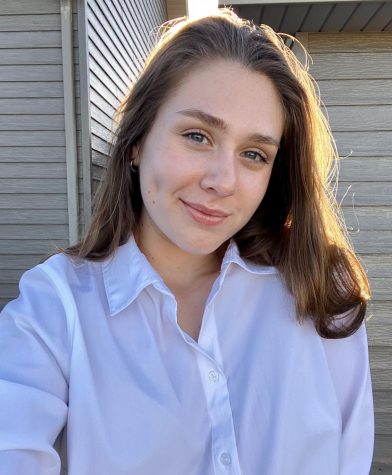
Caitlin Leiker is a senior, and this is her third year in newspaper. She is involved in Chamber Singers, Musical, Spring Play, National Honor Society,...


